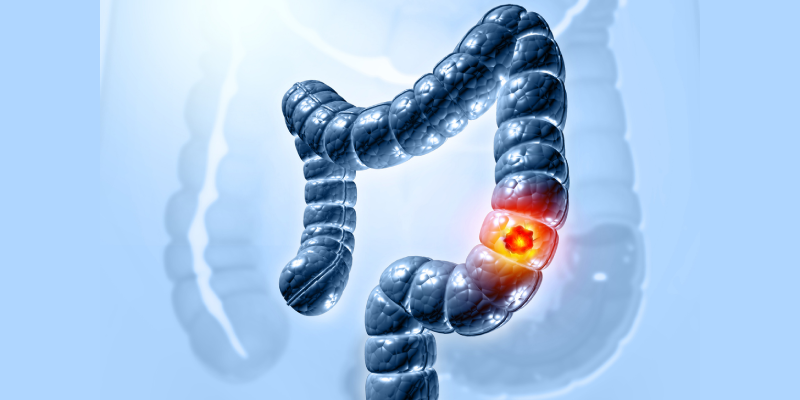
Colorectal cancer is one of the most commonly contracted cancers, and kills over 50,000 Americans a year. It’s the third leading cause of cancer death, with factors such as alcohol, red meat, obesity, and low-fiber/high-sugar diets having been linked to an increased risk. Low carb “ketogenic” (or “keto”) diets produce a molecule in the liver that powerfully suppresses colorectal tumor growth and may be useful in preventing and treating this type of cancer.
According to a new study from researchers at the Perelman School of Medicine at the University of Pennsylvania, mice on low-carb, high-fat keto diets had a significant resistance to tumor growth and development. Originally published in Nature, the scientists found this effect came from beta-hydroxybutyrate (BHB), which is a small organic molecule created in the liver as a “starvation response” by low-carb keto diets as an alternative energy source for key organs.
Maayan Levy, PhD, and Christoph Thaiss, PhD, two assistant professors of Microbiology at Penn State, took over the study from original author, Oxana Dmitrieva-Posocco, PhD. Their teams collaborated to find whether different diets could slow colorectal tumor growth and development in experiments with six groups of mice, all placed on various levels of fat-to-carb ratios before chemically inducing colorectal tumors.
Tumor development was slowed for most mice in the two most ketogenic diets, which had 90 percent fat-to-carb ratios using lard (pig fat) and Crisco (mostly soybean oil). Even when mice were put on these diets after tumor formation and growth, they still slowed further growth. Animals on other diets, such as low-fat, high-carb ones, showed typical tumor growth and development.
Researchers determined slower production of new epithelial cells lining the colon is associated with tumor suppression. The slowdown was traced back to BHB. Not only is it an alternative fuel source, but the study found it can be a potent growth inhibitor for gut-lining cells. Tumor suppression was reproduced by giving the mice BHB in their water or an infusion mimicking natural production of the molecule in the liver.
Experiments on humans’ gut-lining cells show that BHB slows cell growth as well using the human versions of Hcar2 and Hopx. Tumor cells without these two genes were resistant to BHB treatment, meaning their presence could be a good predictor of successful, effective treatment.
A new clinical trial for BHB, which is a widely available dieting option, is being set up while the molecule’s potential is still being studied as an anticancer treatment in other parts of the body. Other molecules caused by ketogenic conditions are also being studied.
“Our findings suggest that this natural molecule, BHB, could someday become a standard part of colorectal cancer care and prevention,” says Dr. Levy, per a press release about the study. Dr. Thaiss adds, “Clinical trials of BHB supplementation are needed before any recommendation can be made about its use in prevention or treatment.”







 © 2025 Mashup Media, LLC, a Formedics Property. All Rights Reserved.
© 2025 Mashup Media, LLC, a Formedics Property. All Rights Reserved.